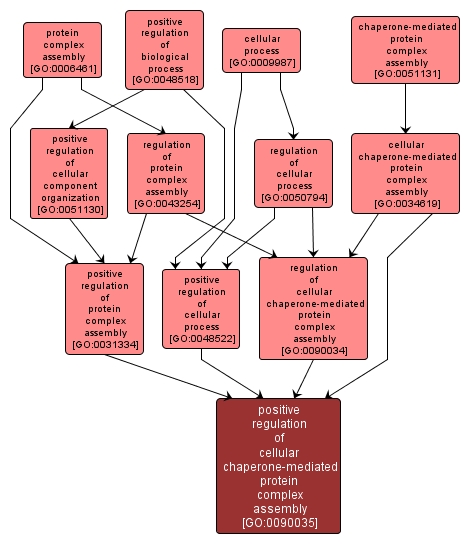| Desc: |
Any process that increases the frequency, rate, or extent of cellular chaperone-mediated protein complex assembly. Cellular chaperone-mediated protein complex assembly is the aggregation, arrangement and bonding together of a set of components to form a protein complex, occurring at the level of an individual cell, mediated by chaperone molecules that do not form part of the finished complex. |














